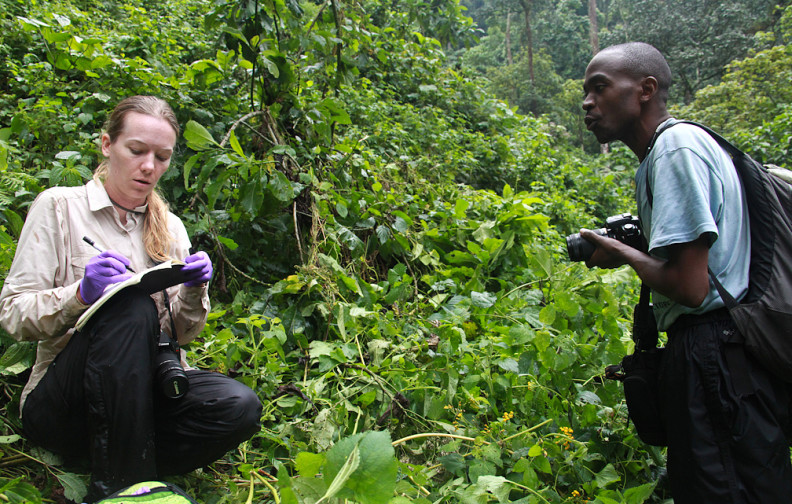Research
When a gorilla requires a complete examination under anesthesia, a variety of samples are collected, including throat and nasal swabs, blood, urine, and feces. When an animal dies, a complete post mortem exam is done, and biological samples (tissues) are collected and sent to our veterinary pathologist Dr. Linda Lowenstine, at UC Davis, for examination under a microscope. By examining gorilla pathology, Gorilla Doctors has been able to identify causes of disease in the population and in some cases trace the origin of certain health problems. For example, Gorilla Doctors was able to determine that two mountain gorillas from Volcanoes National Park in Rwanda died as a result of exposure to a human virus.
Samples are housed in each country, and historically, duplicates have been exported to the US for storage in our biological resource center (biobank) at the Maryland Zoo in Baltimore. Biobank samples are made available to veterinary scientists interested in improving the health of this endangered species. Many biobank samples are evaluated by scientists worldwide to better understand the anatomy, physiology, genetics and health of gorillas.


Dr. Tierra Smiley Evans and Dr. Fred Nizeyimana collect samples in Bwindi Impenetrable National Park for research on the herpesvirus in the mountain gorilla population.
Animal Health Research
The Gorilla Doctors support graduate and PhD student research projects examining zoonotic diseases in both wildlife and domestic animals living near gorilla habitat. Such projects help the Gorilla Doctors to understand possible disease threats within the domestic animal population and potential routes of transmission to gorillas and wildlife. This knowledge helps us to make recommendations to the national park and local authorities on ways to improve health and productivity among domestic animals and cut off routes for disease transmission.
In 2014, Gorilla Doctors hosted Murdoch University PhD candidate Dr. Alisa Kubala, DVM, who is conducting research on malaria in eastern gorillas in Rwanda and DRC. UC Davis PhD candidate Dr. Laurie Harris, DVM is currently analyzing data for her PhD on the epidemiology of respiratory illness in gorillas in Volcanoes National Park. UC Davis PhD candidate Dr. Tierra Smiley Evans, DVM, is conducting research to better understand the epidemiology of herpesviruses in gorillas. In addition, Dr. Olivier Nsengimana, Field Veterinarian for PREDICT Rwanda, is working on a Master’s Degree in Veterinary Science at the University of Edinburgh, Scotland and is looking retrospectively at viral pathogen exposure in eastern gorillas. Dr. Julius Nziza just started a Masters Degree program in Epidemiology and Public Health at Makerere University in Kampala, Uganda, and will likely study viruses of bats that could pose a threat to people and gorillas.


 Donate
Donate